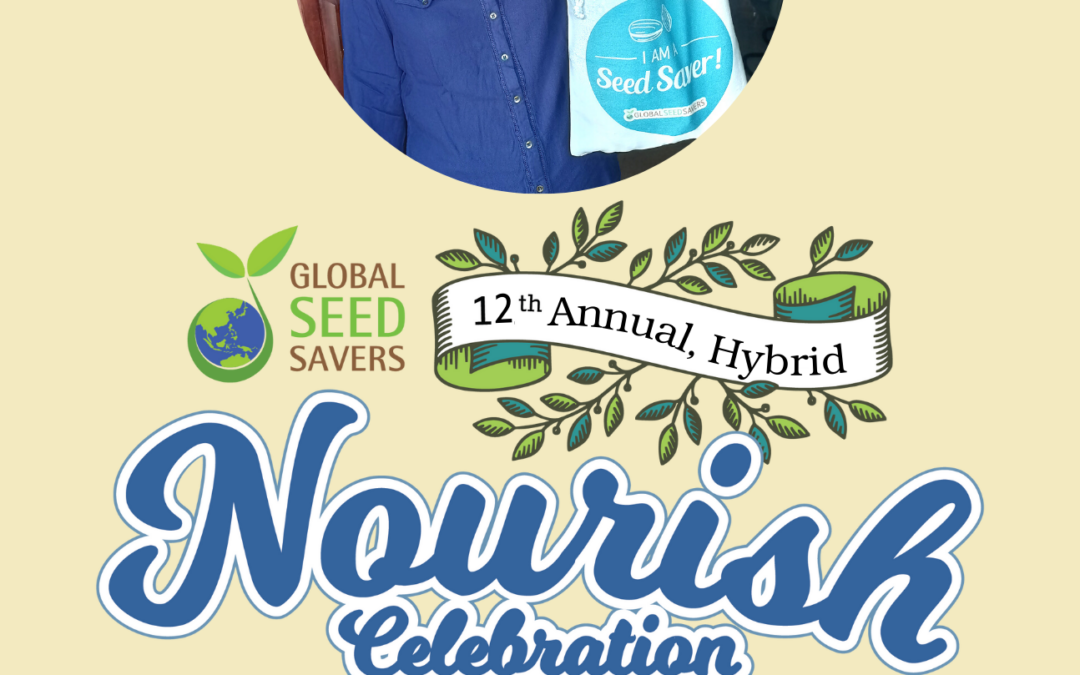
Save The Date For the 12th Nourish Celebration!
Please Save the Date and more details soon to follow!
Friday, December 2nd 6-8pm Denver Time


Thanks to our mentor and strong advocate, Bill McDorman (formerly with the Rocky Mountain Seed Alliance, now at Cornville Seeds) we have been accepted to attend the Food and Agriculture Organization, 9th Governing Body Session on the Treaty for Plant Genetic Resources in New Delhi, India in mid-September.
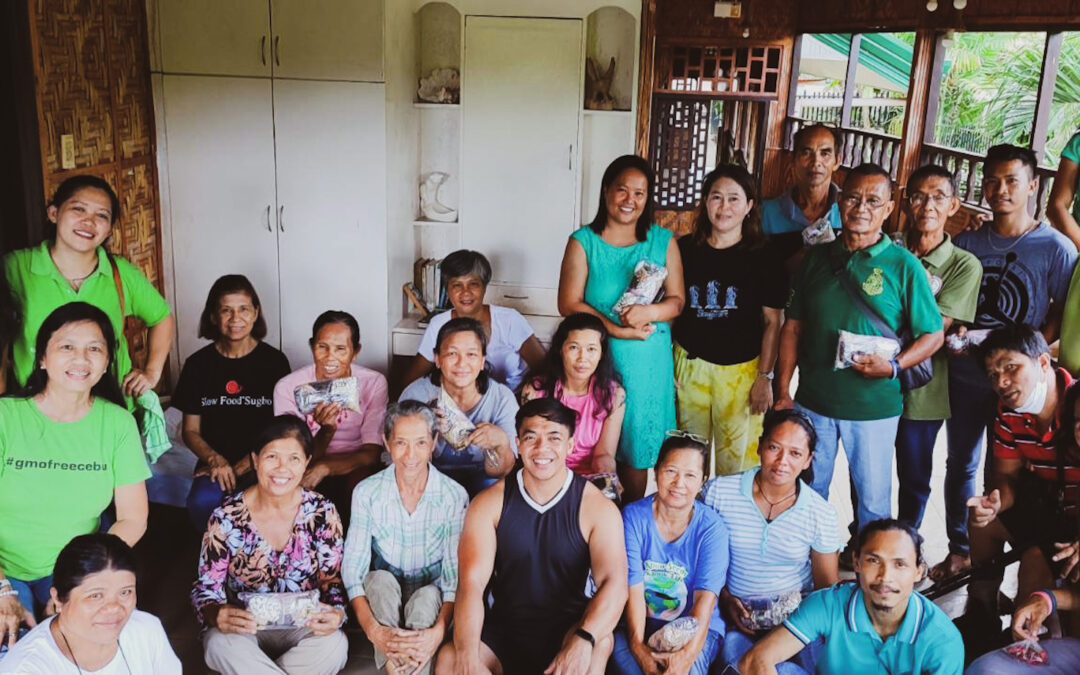
Quarter 1 of 2022 has barely ended, but Global Seed Savers’ work is already in full swing. It’s as if we were all making up for the 2020 and 2021.
Last March 15, 2022, we conducted the Food Sovereignty Launching in Tublay, Benguet. As part of the campaign, we have also conducted two more workshops: Climate Smart Agriculture in Cebu and a training on Underutilized Legumes in the Cordillera. Aside from these two activities, we also celebrated Earth Day last April 22, 2022 with several farmers from Tublay by giving a short lecture on seed saving.[This article is focused on the first two activities mentioned above. For an update regarding our Earth Day 2022 Celebration read, Reflecting on our Earth Day Celebrations].
The Climate Smart Agriculture Workshop was conducted last March 23 to 25, 2022 at the Arapal Nature Farms in Cebu. It was facilitated by Farmer Jon Sarmiento from Mindoro, and attended by our partners at CAFEi and the Cebu Seed Savers.
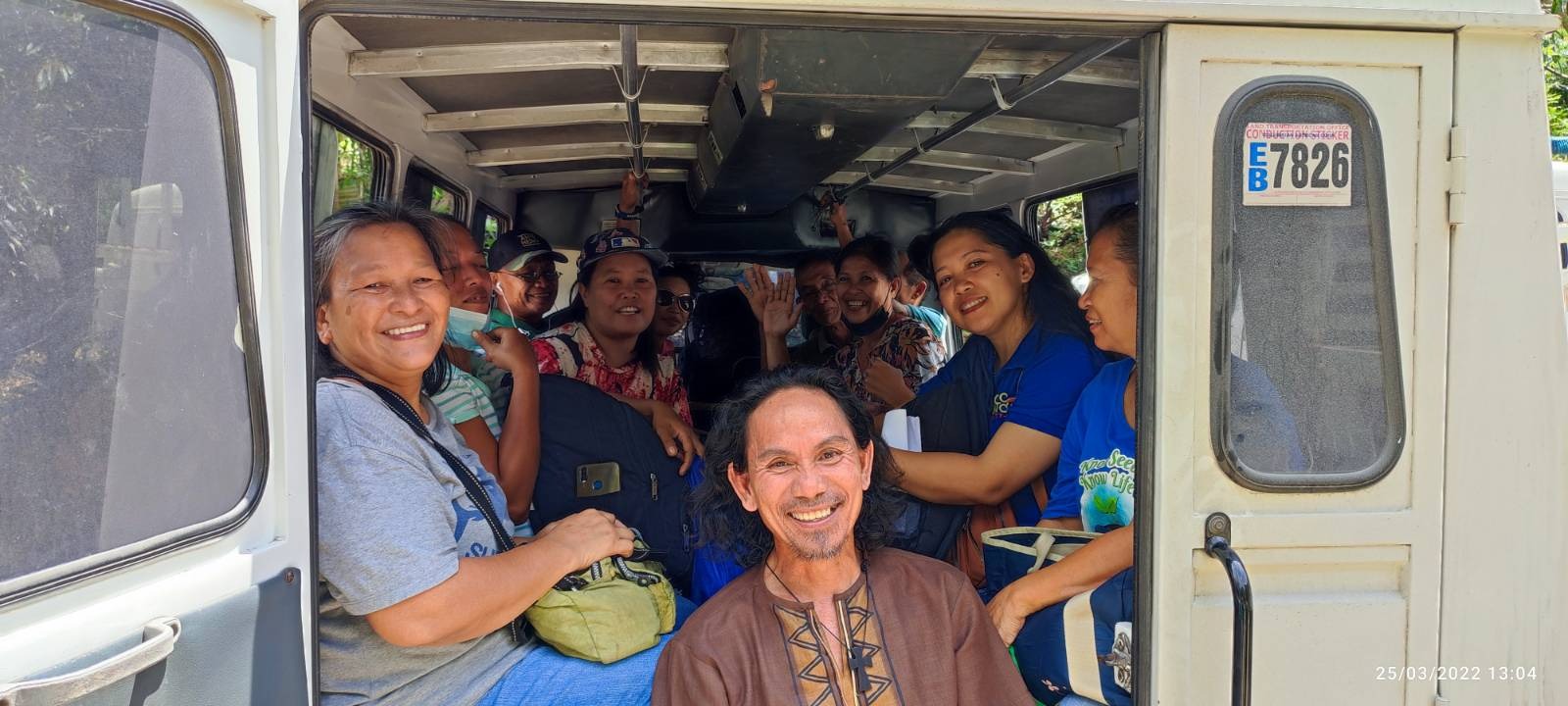
Of the many important topics that was discussed by Farmer Jon, one that had a great impact was the importance of prioritizing food security for the families. He says that food should be locally produced and processed.
That food is essential to societies is no longer debatable. But the pandemic has taught us that disruptions in food supply can happen. Can you imagine how a community that is solely reliant on food imports and has no capacity to produce its own food fared during the pandemic?
But Farmer Jon’s discussion of food security did not just refer to the abundance of food. He also discussed the importance of nutrition security, which enabled him to discuss the many intricacies of food production. He discussed the importance of adhering to Intensified Diversified Organic Farming Systems (IDOFS) and Permaculture and stresses need to adhere to the values and principles that respect the interdependence of nature and human societies.
Beyond the skills of conducting Farm Vulnerability Assessments, and planning for disaster-proof farms, Farmer Jon has also sought to introduce to attendees a new philosophy of farming which offers a good balance between protecting the traditional practices, and promoting innovation.
This workshop was held last April 8, 2022 in partnership with the Benguet State Education Higher Education Regional Research Center (BSU-HERRC).
Here are some of the highlights of that lecture:
These two events have once again, allowed us to rediscover the reality that there are many ways to achieve food sovereignty in the Philippines. These have also reminded us of our unique role in helping farmers access important information that can help them improve their practice.
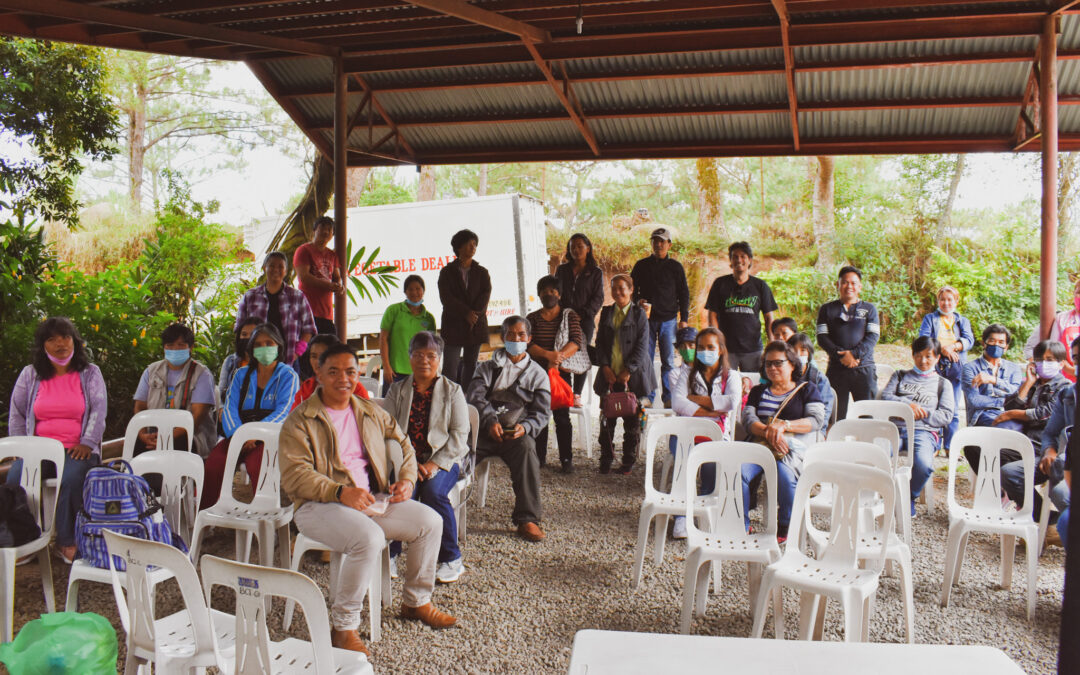
Why are we celebrating Earth day? I have always thought of it as a corporate gimmick which was geared towards getting more people to spend. But my research into the origins of Earth Day has led me to several insights.
The first celebration of Earth Day was in the 1970s, which was attended by 40,000 to 60,000 people. From the beginning, Earth day was designed to raise awareness about persistent environmental issues which plagues the planet. Environmental activism was still in its beginning stages and the Earth day helped propel climate consciousness forward. [1]https://www.nationalgeographic.org/encyclopedia/earth-day/
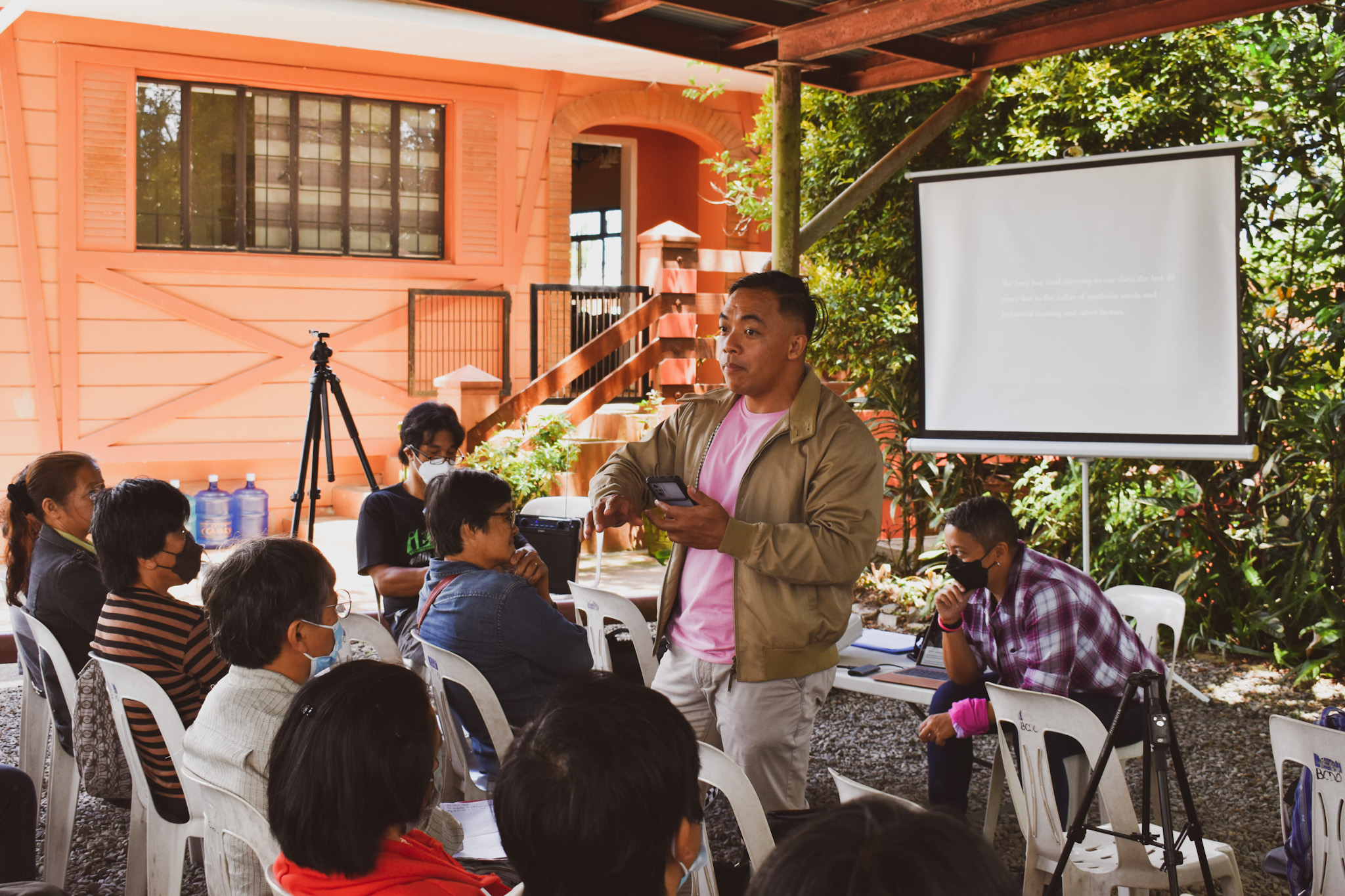
Efren giving introduction on the importance of seed saving.
The Earth Day was so powerful that just a year after, the US passed important policies such as The Clean Air Act, The Water Quality Improvement Act, The Endangered Species Act, The Toxic Substances Control Act, and the Surface Mining Control and Reclamation Act.[2]https://www.colorado.edu/ecenter/2021/04/15/history-and-importance-earth-day
Since then, Earth Day has become a day for reflection on how our actions serve to protect or harm our planet. It also serves as a reminder for the significance of protecting the health of the planet, and a day for asking ourselves what we can do to help ensure continuity of life on earth.
Many people credit Earth day as a vital turning point: from a society whose main goal was to extract resources from the Earth, we have now reached a point of awakening to our common destiny as citizens of this planet.
But even as environmental consciousness is spreading around the world, to this day, the degradation of our natural resources continue. We are now in the midst of a climate crisis. In fact, in its February 2022, the Intergovernmental Panel on Climate Change warned that some impacts of global warming is no longer reversible. [3]https://www.bbc.com/news/science-environment-60525591
According to the study, “Over 40% of the world’s population are highly vulnerable to climate and that…places where people live and work may cease to exist, that ecosystems and species that we’ve all grown up with and that are central to our cultures and inform our languages may disappear”.
Despite these bleak predictions, however, Dr. Helen Adams, the report’s lead author from King’s College, London says, “things are bad, but actually, the future depends on us, not the climate”.
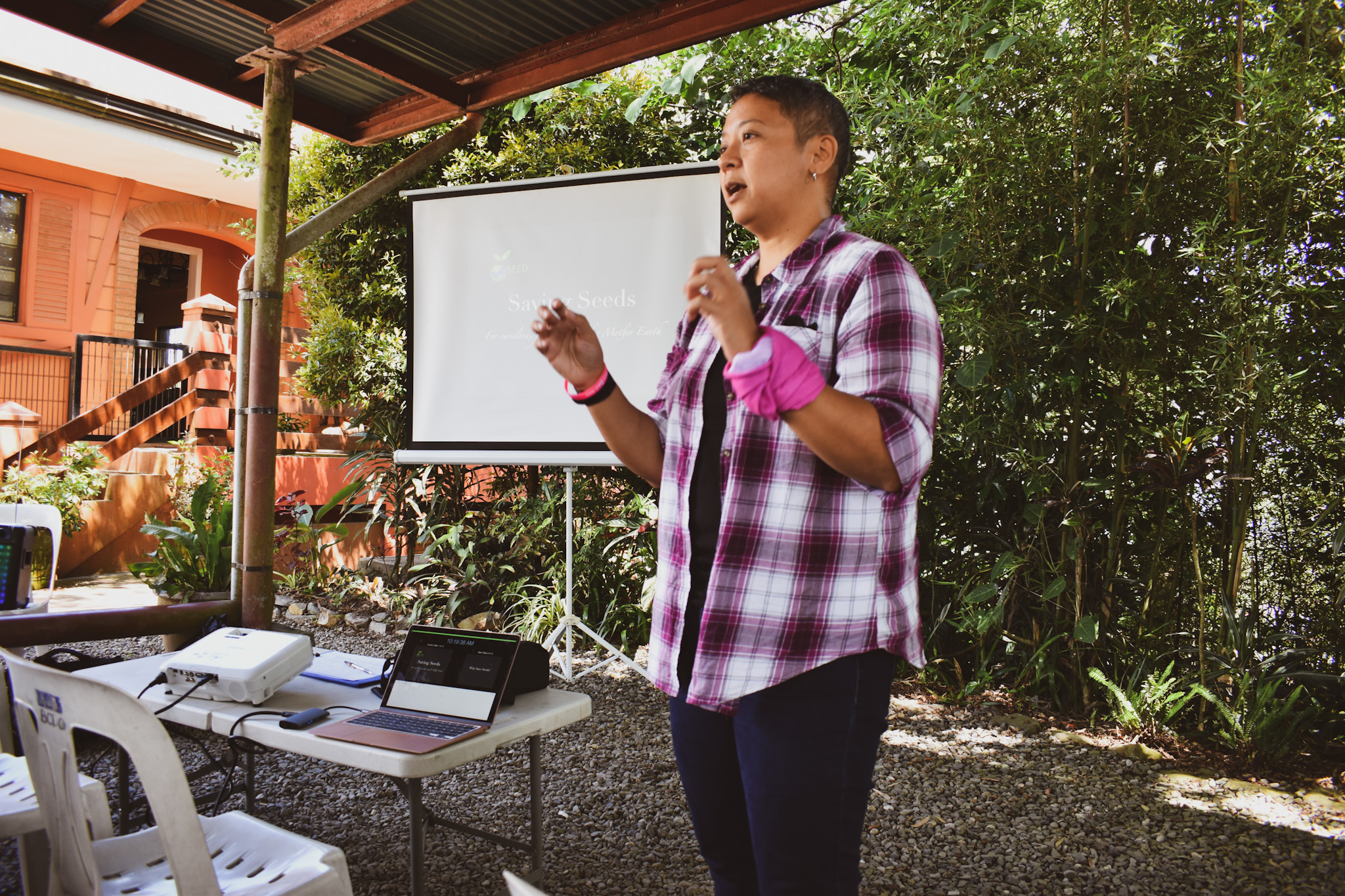
Karen discusses the impact of GMOs on our health.
If we are to turn things around for our planet, and for our societies, we must be ready to take drastic action.
But what exactly does it mean?
The theme for this year’s Earth day is “Invest in our Planet”.[4]https://www.earthday.org/ It proposes two solutions:
How can these be translated to the Philippine context? As an agricultural country, the second solution may be most applicable for us, and in this, we are happy to say that conversations are already underway. [5]https://mb.com.ph/2022/02/09/regenerative-agriculture-practices-a-key-to-sustainability/, … Continue reading
But the way forward is still wrought with many challenges. The struggle for the transformation of the Philippines’ agricultural landscape is real.
For one, thousands of farmers in the country still refuse to transition to organic farming despite knowing the environmental and health impact of chemical agriculture. Our very own government is also pushing for GMO products, despite massive resistance among farmers, the most recent of which is the Golden Rice.[6]https://asia.nikkei.com/Business/Agriculture/Philippines-stirs-controversy-with-genetically-modified-rice, … Continue reading
A 2014 study published by the American Marketing Association shows that belief systems, not profit, is the main reason why chemical farmers continue with their practice. The study found that “[M]aking that change [from chemical to organic] feels like switching belief systems”.[7]https://www.sciencedaily.com/releases/2014/11/141111092825.htm
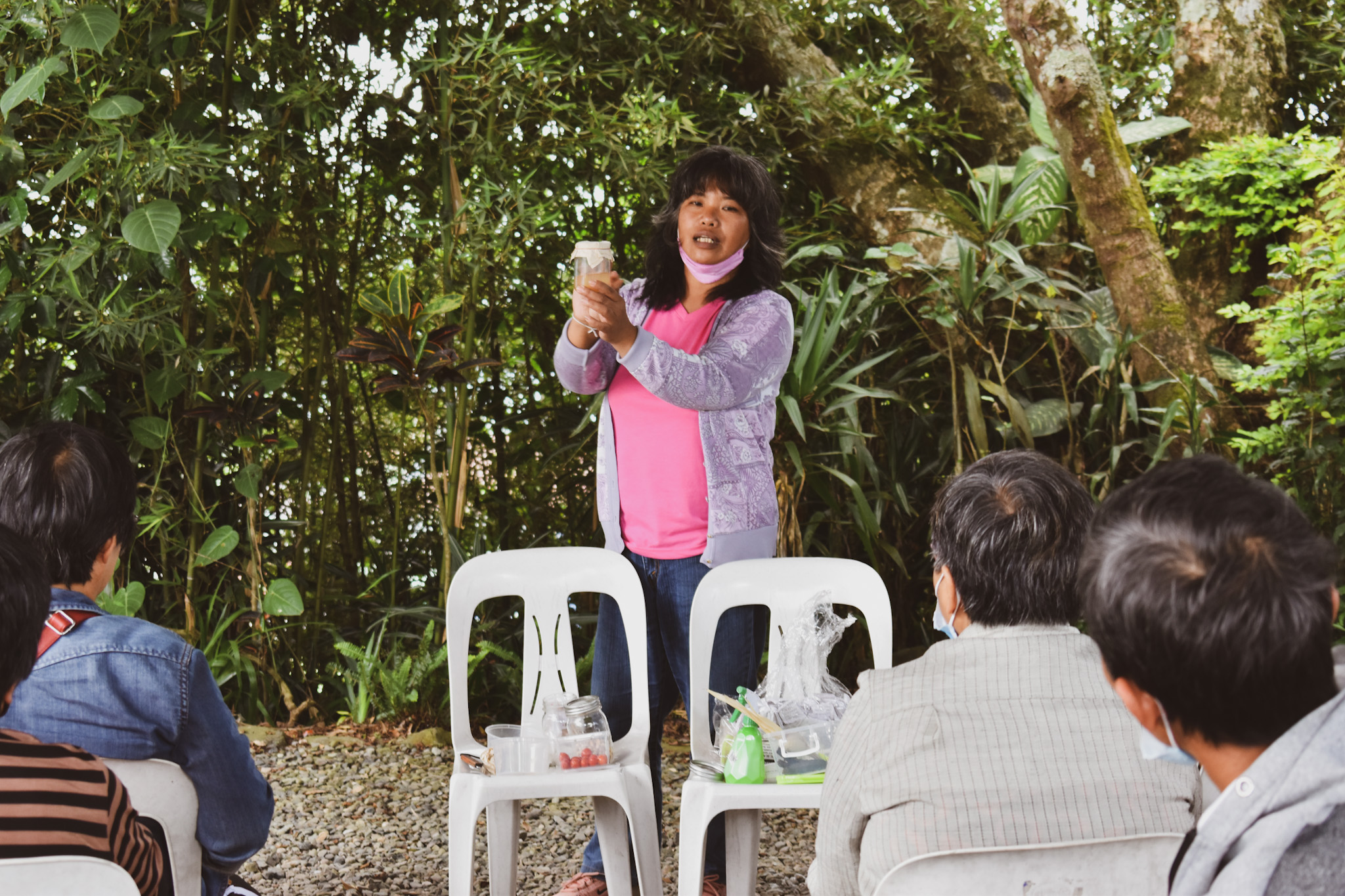
Manang Elizabeth discussing the wet and dry methods of seed saving.
This discovery now points to the reality that the problem is now ideological. This makes the work of Global Seed Savers (GSS) and other environmental organizations both easy and difficult.
On the one hand, the “battle” is difficult because we will be going against deeply entrenched belief systems and decades of destructive habits.
On the other hand, it is also easy because we now know what we are up against. Now we need to come up with new ways of inspiring farms to adopt changes in their practice which are both sustainable and profitable.
And because the challenge is now ideological, it will require from us a lot of conversations with partner farmers in order to find the balance between their dreams for the future, and the need to restore our ailing planet.
We realize now the importance of going about our work in a holistic way. In the same way that we must ensure that regionally-adapted seeds are accessible to farmers, we must also pay attention to the health of the soil, water, and air. [This is the reason why we are now engaged with food sovereignty and the conversation about climate smart agriculture, read Report on GSS Activities, Some Highlights].
This Earth Day has led us back to a space of gratitude, for this planet, and for our friends and allies who continue to protect our living planet. Our work is just beginning, but we are ready.
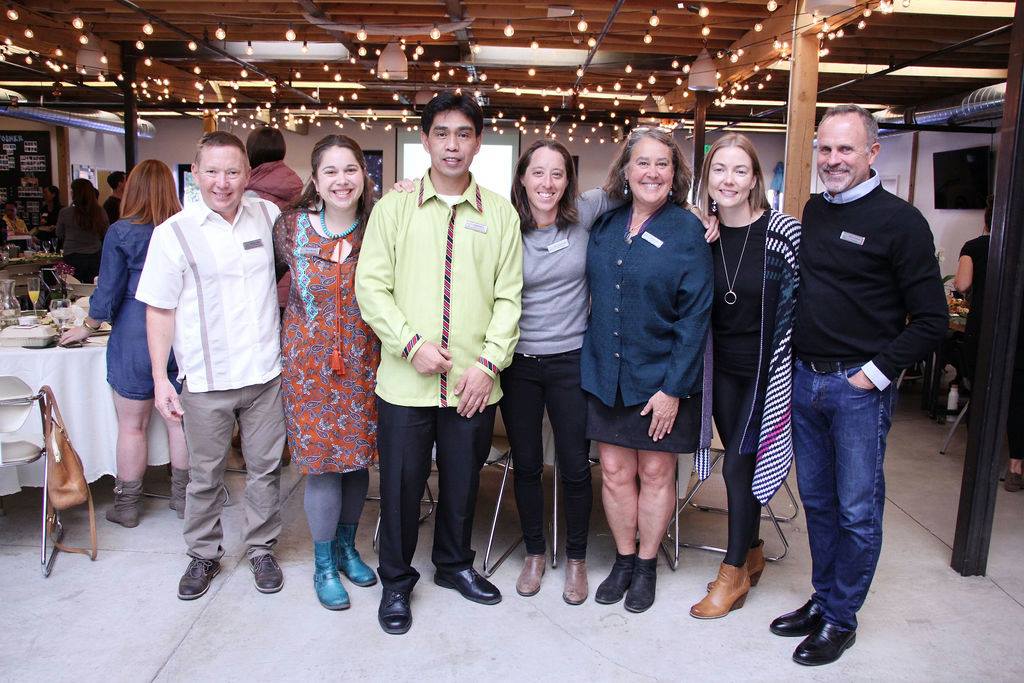
Once again, it is that time of year, when I am off to the Philippines for my annual trip! It always feels like a big push to make this trip happen, but once I am sitting (as I am now) at the gate in Seattle, the rush to get here fades away and my excitement for the next 5 weeks begins to set in.
My departure always follows our Annual Nourish Celebration and this years’ event was one for the books! On Saturday, October 26th over 130 guests gathered at the Posner Center for International Development to celebrate all things seeds, Filipino Food, and community. Sharing a beautiful Kamayan Feats guests enjoyed this communal style of Filipino eating with bare hands, which made for a festive and visually stunning experience. (more…)